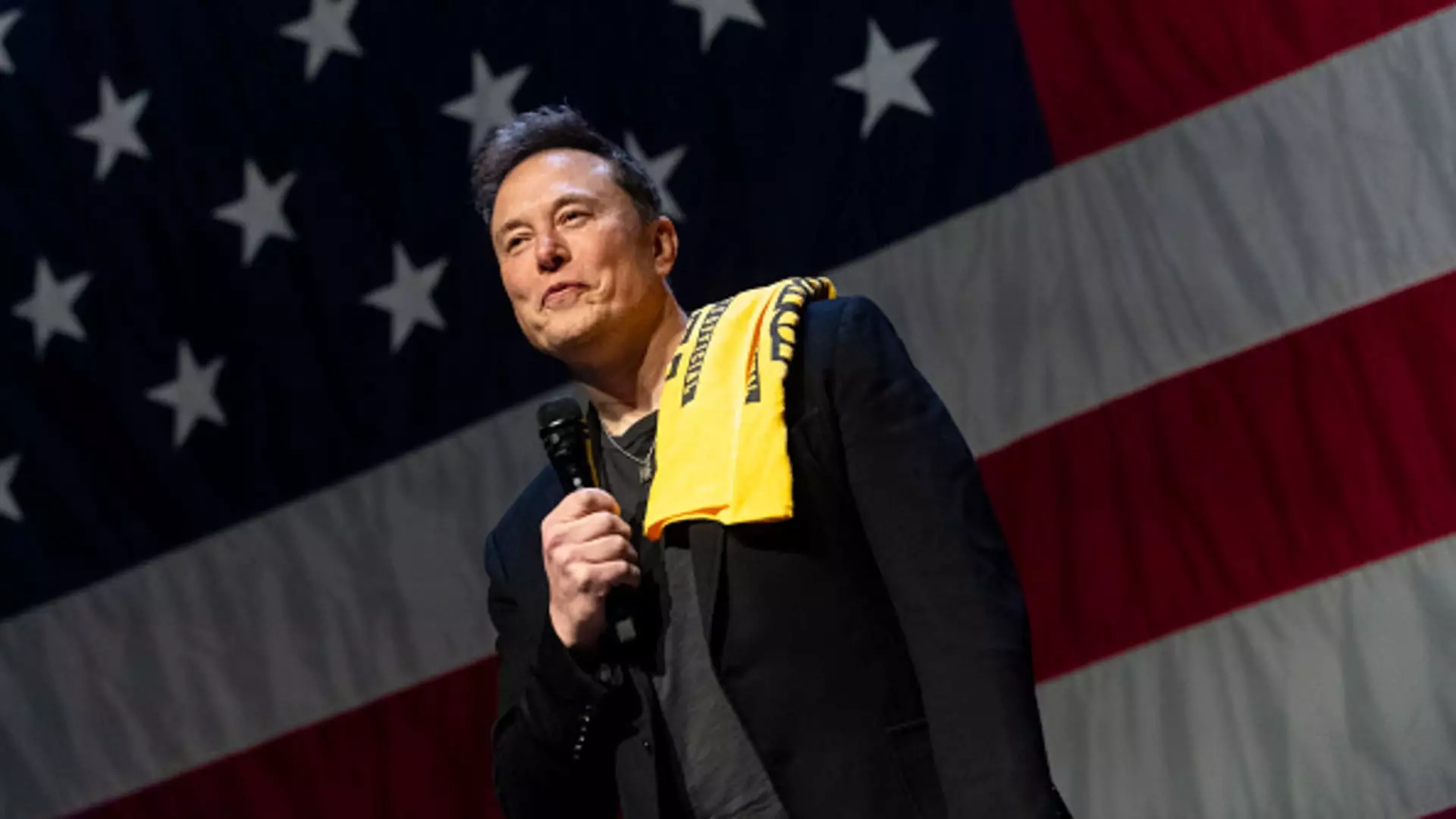In a significant legal confrontation, the Philadelphia District Attorney’s office has initiated a lawsuit aimed at halting Elon Musk and his political action committee, America PAC, from continuing their controversial scheme of awarding $1 million prizes to voters in pivotal swing states. Originally filed in state court, the lawsuit has now shifted to the federal arena in Pennsylvania, leading to a complex legal battle that raises questions about campaign finance laws and voter influence.
The crux of the lawsuit revolves around claims that Musk’s actions represent an illegal, unregulated lottery, with District Attorney Larry Krasner contending that this initiative violates both state and federal laws. This case has garnered attention not only for its legal implications but also for the high-profile figures involved, particularly Musk, who has a history of navigating contentious waters with both the media and the legal system.
Jurisdictional Maneuvers
The date of reckoning for this legal battle was tightly scheduled, with the initial hearing set to discuss an emergency request to cease the $1 million giveaways promptly following its complaint filing. However, Musk’s legal team adeptly maneuvered the first hearing into the federal court system, citing America PAC’s registration as a federal entity as their basis for removal. This procedural tactic adds an additional layer of complexity to the lawsuit, showcasing a potential strategy to shield themselves from state law oversight.
Krasner’s attorney, John Summers, has stated intentions to have the case remanded back to state court, asserting the DA’s lawsuit as primarily grounded in state law regarding public nuisance and consumer protection. This jurisdictional tug of war underscores the nuances of legal processes in such politically charged contexts, raising questions regarding where the ultimate authority lies in determining the legality of Musk’s initiative.
Musk’s America PAC is offering monetary incentives to sway individuals in swing states to sign petitions purportedly “in support of the Constitution.” Critics, including Krasner, argue that this practice represents a brassy enticement for voters, potentially compromising the integrity of the electoral process. Voter interference is a serious allegation, as Musk’s alignment with a distinct political ideology—specifically his strong backing of Donald Trump—calls into question the essence of this initiative.
The lawsuit goes beyond just the challenge of legality; it signals significant concerns about the influence of wealth in politics. By offering sizable cash prizes, Musk’s actions may establish a troubling precedent where financial incentives are used to sway voters, essentially commodifying the act of civic engagement. As Krasner mentions in the lawsuit, luring citizens to provide personal information in exchange for a chance at a monetary reward alters the dynamics of democratic participation, which traditionally is rooted in voluntary and informed consent.
Political Ramifications and Broader Context
The political environment surrounding this lawsuit cannot be overlooked. The tension between Musk’s public persona and Krasner’s narrative focuses on amplifying concerns about antisemitic attacks—highlighting the broader societal implications of Musk’s significant social media presence. This aspect adds another layer of complexity, as Krasner’s team raises issues of security threats stemming from Musk’s followers, turning the legal dispute into a conversation about personal safety and public figures’ responsibilities.
Moreover, the previous warnings issued by the U.S. Department of Justice suggesting that America PAC’s funding giveaways might conflict with federal election laws illustrate just how precarious the line is between permissible campaign strategies and illicit actions. Despite the lack of an official court intervention from federal authorities, the looming possibility of federal scrutiny adds weight to the District Attorney’s claims.
As events continue to unfold, the upcoming decisions by the courts will be pivotal. The myriad implications of this case stretch far beyond just the fate of Musk’s money giveaways; they touch upon essential questions surrounding electoral integrity, the influence of wealth on politics, and public trust in democratic processes. The outcome of the Philadelphia DA’s lawsuit could set significant precedents for how large-scale monetary incentives can be utilized within political campaigns, forever altering the landscape of electioneering in the United States.
As this unique case evolves, it encapsulates the dynamic interplay between politics, law, and ethics in contemporary American society, challenging the norms of civic engagement and questioning who truly holds the power in the democratic process.


Leave a Reply